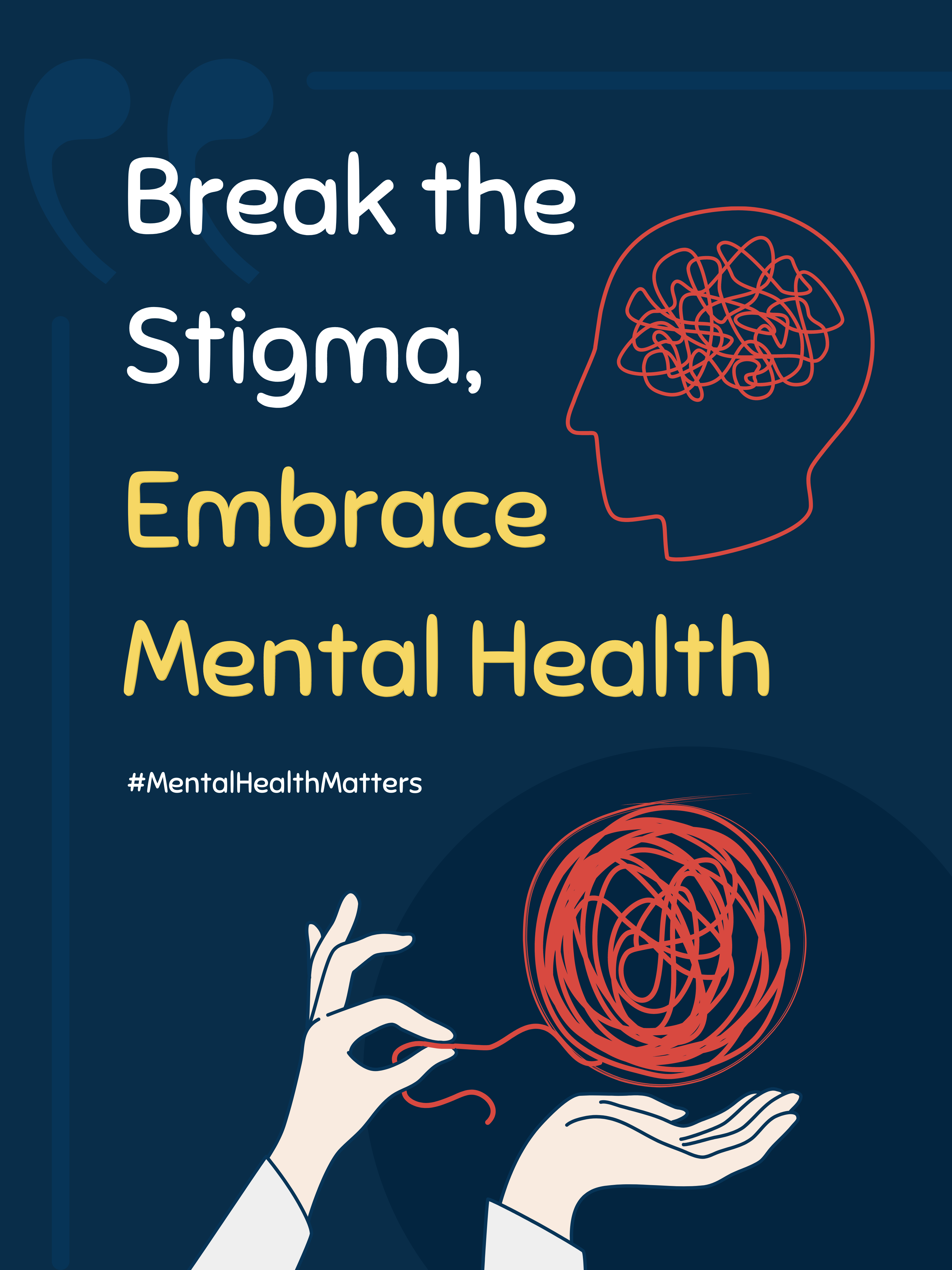Introduction:
Mental health stigma is a pervasive and deeply rooted problem that affects individuals worldwide. It encompasses negative attitudes, beliefs, and stereotypes surrounding mental health conditions, often leading to discrimination, prejudice, and social exclusion. Mental health stigma can prevent individuals from seeking help, hinder their recovery, and perpetuate disparities in access to care and support systems (American Psychological Association, 2017). It is important to recognize that mental health stigma is not homogeneous across cultures; it varies in its forms, manifestations, and underlying cultural factors. Understanding the different dimensions of mental health stigma in various cultural contexts is crucial for developing effective strategies to address this global challenge (Link & Phelan, 2001).
Types of Mental Health Stigma:
Mental health stigma can take on different forms, each with its own unique impact on individuals and communities. Some common types of mental health stigma include:
Labeling: Labeling refers to the process of assigning negative stereotypes or derogatory terms to individuals with mental health problems. Labels such as “crazy,” “insane,” or “mentally weak” are often used to stigmatize and marginalize individuals, perpetuating stereotypes and misconceptions (Corrigan et al., 2012).
Discrimination: Discrimination occurs when individuals with mental health conditions face unjust treatment or differential access to opportunities and resources. This can manifest in various domains, including employment, education, healthcare, and housing. Discrimination based on mental health status can result in social exclusion, limited career prospects, and compromised quality of life (Link & Phelan, 2001).
Stigma by Association: Stigma by association refers to the negative judgments and biases faced by individuals who have a close relationship with someone experiencing mental health challenges. Family members, friends, and caregivers often experience stigmatization due to their association with someone with a mental health condition. This can lead to isolation, social alienation, and emotional distress (Jorm et al., 1997).
Impact of Stigma:
Mental health stigma has far-reaching consequences that profoundly affect individuals, families, and communities. Some of the key impacts of mental health stigma include:
Barriers to Help-Seeking: Stigma can create significant barriers to seeking mental health support and treatment. The fear of being judged, ostracized, or facing discrimination often deters individuals from reaching out for help, leading to delayed intervention and potentially worsening mental health outcomes (Corrigan et al., 2012).
Social Exclusion and Isolation: Stigma isolates individuals with mental health conditions, exacerbating feelings of loneliness and disconnection from social networks. The fear of judgment and rejection may lead to withdrawal from social interactions, reducing opportunities for support, understanding, and recovery (Link & Phelan, 2001).
Health Disparities and Inequalities: Mental health stigma contributes to health disparities by creating unequal access to healthcare and support services. Stigmatized individuals are more likely to experience inadequate or substandard care, limited employment opportunities, and reduced socioeconomic status, perpetuating a cycle of disadvantage (Jorm et al., 1997).
Challenges of Reducing Stigma:
Reducing mental health stigma requires multifaceted approaches that address various challenges. Some of the key challenges include:
Cultural and Societal Beliefs: Cultural beliefs and societal attitudes toward mental health play a significant role in shaping stigma. Cultural factors, including religious beliefs, traditional healing practices, and cultural norms surrounding mental health, can contribute to the stigmatization of individuals. Understanding and addressing these cultural influences is essential in tackling stigma effectively (Link & Phelan, 2001).
Lack of Knowledge and Awareness: Widespread misconceptions and lack of accurate knowledge about mental health conditions perpetuate stigma. Educational campaigns that promote accurate information and challenge stereotypes are crucial in dispelling myths, reducing fear, and fostering empathy and understanding (Corrigan et al., 2012).
Media Portrayal and Public Discourse: Media plays a powerful role in shaping public perceptions of mental health. Negative and sensationalistic portrayals in the media can reinforce stigmatizing stereotypes, further isolating individuals with mental health conditions. Encouraging responsible and accurate media representation is important in countering stigma (Jorm et al., 1997).
Intersectionality: Mental health stigma intersects with other forms of discrimination, such as racism, sexism, and ableism. Individuals who belong to marginalized groups may face multiple layers of stigma, which exacerbates their experiences of discrimination and inequities. Addressing the intersectional nature of stigma is crucial in promoting inclusivity and social justice (Link & Phelan, 2001).
Conclusion:
Mental health stigma is a complex and pervasive issue that varies across cultures. Recognizing and understanding the different forms and impacts of mental health stigma in diverse cultural contexts is essential for developing effective interventions and strategies. Addressing mental health stigma requires collaborative efforts from individuals, communities, healthcare systems, and policymakers. Promoting education, awareness, and cultural sensitivity, challenging stereotypes, and fostering inclusive environments are key steps toward reducing mental health stigma and creating a more supportive and equitable society.
If you or someone you know is facing mental health stigma, reaching out to mental health professionals, therapists, or support groups can provide valuable assistance. Additionally, mental health advocacy organizations can offer resources and guidance. Remember, by collectively working to reduce mental health stigma, we can create a world that promotes compassion, understanding, and acceptance for all individuals.
References
American Psychological Association. (2017). The road to recovery: The National Alliance on Mental Illness 2017 report on mental health. Arlington, VA: National Alliance on Mental Illness.
Corrigan, P. W., Kosyluk, K., Rüsch, N., & Michalak, E. E. (2012). Challenging the stigma of mental illness: A review of stigma change interventions. Annual Review of Clinical Psychology, 8, 161-187.
Jorm, A. F., Korten, A., Jacomb, P. A., Christensen, H., Rodgers, B., & Ewins, D. (1997). Association between mental health literacy and beliefs about mental illness, self-esteem, and life satisfaction. Psychological Medicine, 27, 1763-1773.
Link, B. G., & Phelan, J. C. (2001). Conceptualizing stigma. Annual Review of Sociology, 27, 363-385.







Tharushi Imasha Kumarasiri
Jul 26, 2023
0